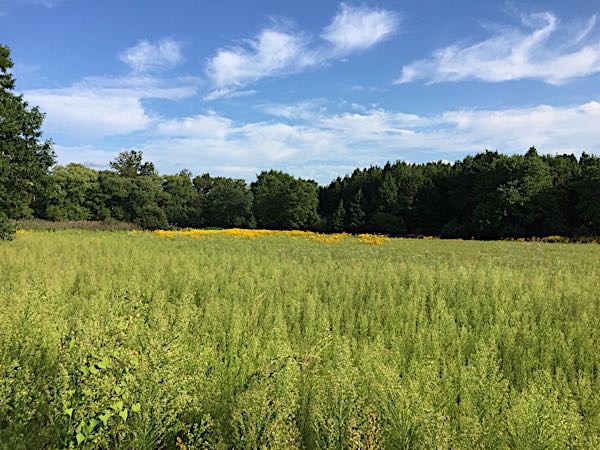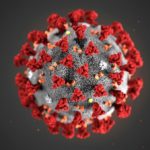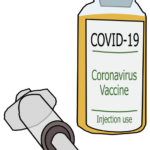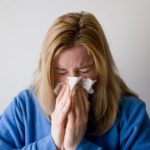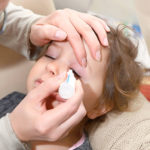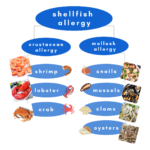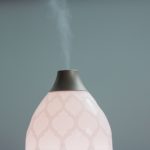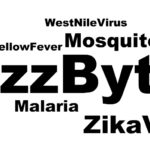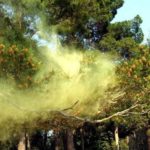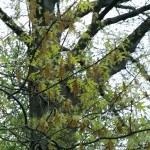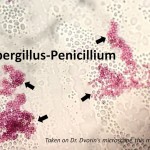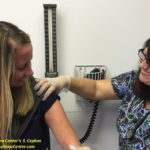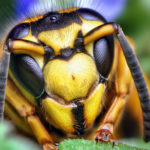Extreme Bloom Burst: Radiant Ragweed Invasion
For interviews and tours of the Delaware Valley’s only certified pollen and mold spore stations for the National Allergy Bureau (NAB) with stations, please email gwoodlyn@asthmacenter.com
The health information contained in this article is meant for basic informational purposes only. It is not intended to serve as medical advice, substitute for a doctor’s appointment or to be used for diagnosing or treating a disease.
Today’s pollen and outdoor mold count from The Asthma Center, the Delaware Valley’s only official count station certified by the National Allergy Bureau (NAB):
Tree pollen is very low.
Grass pollen is moderate.
Ragweed pollen is extreme.
Other Weed pollen is high.
Outdoor Mold Spores are very high.
Predominant: Ragweed Pollen
#LocalPollenCount Details from Dr. Dvorin
As expected, Ragweed pollen is flooding our air. This photo taken by Dr. Dvorin shows a cluster of ragweed pollen. Note the classic “spikes” which distinguish ragweed pollen from other pollen.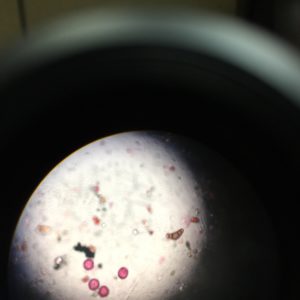
Other weed pollen present include Sage, Sheep Sorrel/Dock, Nettle, and Ornamental weeds.
“Let’s not forget about the fall grass pollen season,” reminds Dr. Dvorin.
In the 1990s, Dr. Dvorin and his partners discovered that our region experiences both the typical spring grass pollen season, and a second grass pollen season in the fall. This discovery was included in the only published work to define pollen and mold spore seasons for the Delaware Valley. [Dvorin DJ, Lee JJ, Goldstein MF, et al. A Comparative, Volumetric Survey of Airborne Pollen in Philadelphia, Pennsylvania (1991-1997) and Cherry Hill, New Jersey (1995-1997). Ann Allergy Asthma Immunol 2001; 87:394-404]
Outdoor Mold Spore levels decreased by an estimated one-half over the last 24 hours, which according to Dr. Dvorin may be related to drier, cooler conditions overnight. For those with allergy to outdoor molds, however, today’s very high levels may continue to provoke moderate to severe symptoms.
#WednesdayWisdom from Dr. Dvorin
“Ragweed blooms are clearly in full swing here in the Delaware Valley,” says Dr. Dvorin. “And if you have allergies and/or asthma, you should definitely be maximizing your personal Allergy Action Plan!”
For example, your individual Allergy Action Plan may include the use of eye drops, nasal drops, antihistamines and/or nasal rinses 30 minutes to one hour prior to going outdoors. This example is for general informational purposes only and is not intended to serve as medical advice or substitute for a doctor’s appointment.
Reminder for Current Patients of The Asthma Center: If you have not reviewed your Allergy Action Plan with one of our board certified allergists in the last three months, schedule your appointment now.
Sneezing, Coughing, or Wheezing right now?
To find out if you are allergic to ragweed, call now to schedule Allergy Skin Testing, which is one of the most reliable methods to determine allergy sensitivity, particularly when correlated with your personal history.
To accommodate the schedules of both our current and new patients, The Asthma Center is offering Saturday appointments throughout September and October in our Mount Laurel, NJ, Hamilton, NJ, Langhorne, PA, and Northeast Philadelphia locations.
Be sure to Subscribe to receive The Asthma Center daily pollen counts direct to your inbox.
Grass Pollen: Does the smell of cut grass bother you?
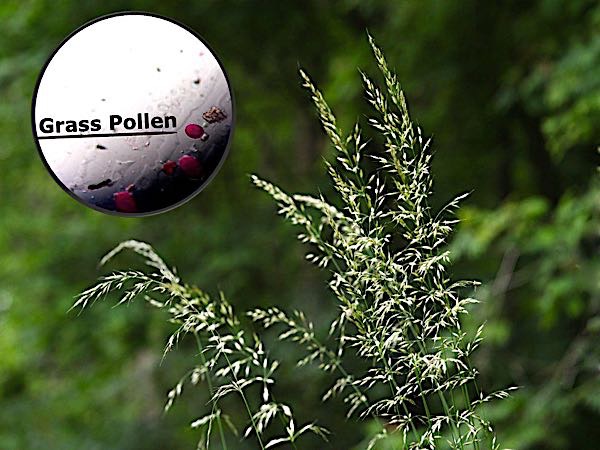
Mowing your lawn regularly can help cut down on the pollination of grasses on your property. However, many people experience allergy symptoms when exposed to the smell of freshly cut grass. Allergic reactions to mowed grass are more likely from the non-pollen parts of the grass containing allergenic proteins or molds being stirred up in the mowing process. When you mow your lawn, allergen concentration of this type will dramatically increase for a short period of time during and immediately after you mow. So, mowing your lawn will often be beneficial in the long-term, though it may aggravate your allergies short-term. Reactions to cut grass sometimes can go beyond the Spring grass pollination season as well. Again, this is not due to grass pollen but from exposure to mold spores or reactions to other grass antigens in the blades of grass.
Tips to Reduce Pollen Exposure
- Wear long sleeves and long pants when mowing the grass. Be sure to shower & wash your hair afterwards.
- Limit time outdoors during the early morning hours when the most pollen is released.
- Sleep with windows closed and drive with windows up.
- Beware of tracking pollen into your home (kids, pets especially, newspaper sleeves, and on shorts and jackets).
- Shower and wash your hair after extended outdoor exposure.
- Wear sunglasses or glasses outdoors to limit exposure of pollen to your eyes.
- Avoid wearing contact lenses, or switch to daily disposable contacts to avoid allergens building up on the lenses.
- Wash your hands and face frequently, including eyebrows.
- Change your pillowcase often.
Make an appointment to see an allergist – Why Choose Us?
The best way to fight your allergies & asthma is to visit a board certified allergist, learn what your allergies are, create a treatment plan, and adjust as needed. No two allergy & asthma sufferers are alike, so don’t rely on over the counter medications when you could be targeting your symptoms with the help of our allergy experts! At The Asthma Center, our goal is to personalize your treatment to help you find relief. One way we accomplish this is by identifying your allergies and specific levels of allergic sensitivity through allergy skin testing to help you plan your treatment. By following the local pollen counts, we are able to customize allergy regimens that prevent symptoms caused by taking too little or too much allergy medication.
Did You Know – Pollen & Mold Spore Counts Direct to Your Inbox!
The Asthma Center’s daily Pollen and Mold Spore Count, the Delaware Valley’s only Official count station which is certified by the National Allergy Bureau are now available via email. Subscribe to receive our daily counts by email or check out some of our other blog posts to learn more about what is in the air, how it can affect you, and what you can do about it.
Recent
Popular

